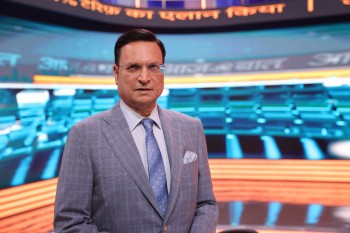
Pakistan Occupied Kashmir is witnessing a wave of repression by the Pakistani army following widespread anti-government protests. Army soldiers fired on civilians staging protests and visuals emerged of dead bodies lying on the streets.
Army is not even sparing the local PoK police suspecting connivance of policemen with the protesters. Thousands assembled in Muzaffarabad and Mirpur and Prime Minister Shehbaz Sharif’s government has sent a delegation to speak to the leaders.
On Thursday, authorities ordered the local police to fire on agitators but policemen refused to obey orders. Soon afterwards, nearly a thousand armed soldiers from counter-terrorism unit was sent from Islamabad to join Pakistan Rangers and the army to suppress the rebellion. Orders have been issued to prevent agitators from reaching Muzaffarabad at any cost.
In order to prevent ground reports from reaching the rest of the world, internet has been banned in PoK and media reporting has been curbed.
The protests led by Awami Action Committee are said to be the biggest in last 38 years. Protests were taken out in Karachi and Islamabad to condemn the atrocities in PoK. In Islamabad Press Club, policemen barged in and thrashed a group of lawyers and journalists who were describing how the atrocities took place.
Though press censorship has been clamped in PoK, several independent journalists are disseminating ground reports from the trouble-torn areas. One journalist, Imran Riaz disclosed that a large number of civilians have been killed by Pakistan Rangers and the government is hiding the true figures. Another journalist put the death toll at more than 50.
Army has set up huge containers to prevent the Long March protesters from reaching Muzaffarabad. People, including children, are sitting on dharna on the roads.
Prime Minister Shehbaz Sharif, now in London, has sent his party leaders for talks with Awami Action Committee.
The brutal attack on journalists inside Islamabad Press Club exposes the true face of Army Chief Asim Munir and PM Shehbaz Sharif. India TV telecast visuals of dead bodies lying on the roads in PoK on Thursday night in ‘Aaj Ki Baat’ show. These visuals were obtained by India TV with much difficulty, bypassing censors.
Pakistan government does not want the world to know about the deaths of civilians in army firing. This is the reason why media reporting has been banned in PoK and internet has been shut down.
Visuals of dead bodies in PoK have vanished from Pakistani mainstream media. The people of PoK are asking where are those busybodies who were lighting candles? Where are those people who were mouthing tall claims about human rights. Why is the western media turning a blind eye to the atrocities in PoK?
I think, no one can suppress the voice of the people of PoK for long. Very soon, the world will see more visuals of atrocities committed by Shehbaz Sharif and Asim Munir.
RSS@100 : Bhagwat’s message of unity
In his annual Vijayadashami speech in Nagpur, Rashtriya Swayamsevak Sangh chief Mohan Bhagwat spoke about US tariff, Pahalgam massacre and Operation Sindoor and environmental crisis in the Himalayan region.
On the controversy over ‘I Love Muhammad’ posters, the RSS chief said, people in India respect all great personalities, but in some places, people are trying to take law into their hands and indulging in violence, which is not justified.
Bhagwat said, India has been a Hindu Rashtra since long, and Hindu unity is the guarantee of security for all. Referring to Sri Lanka, Bangladesh and Nepal, the RSS chief said, violence and anarchy cannot be justified at any cost.
Since becoming RSS chief, Mohan Bhagwat has changed the image of the organisation. He never spoke about pitting Muslims against Hindus, nor did he ever try to tone down his Hindu ideology.
He has always spoken about Hindu unity and the need for strengthening society. Bhagwat has also told RSS swayamsevaks not to try to hunt for Shivlings beneath every mosque. This single message is quite significant. There is no need for confrontation on each and every issue.
Those opposing RSS allege that it incites people to indulge in riots and violence. Mohan Bhagwat clarified this by saying there is no place for violence in democracy. He explained in detail all questions that have been raised about RSS. This will help people to understand RSS in the correct perspective in its 100th year of existence.
Get connected on Twitter, Instagram & Facebook